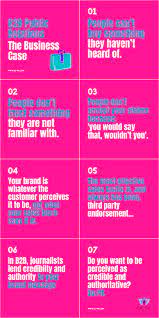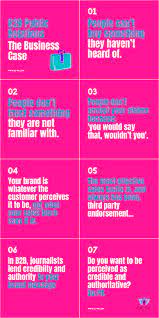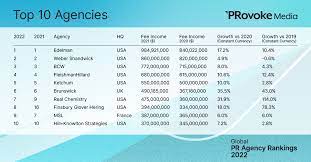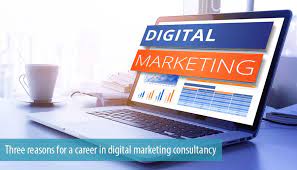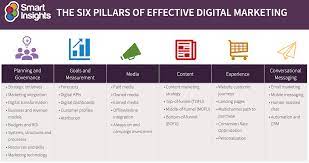B2B Public Relations: Building Strong Connections for Business Success
B2B Public Relations: Building Strong Connections for Business Success
In the competitive landscape of business-to-business (B2B) industries, effective communication and reputation management play a crucial role in achieving success. This is where B2B public relations (PR) comes into play, helping businesses build strong connections, establish credibility, and drive growth.
Unlike traditional PR that focuses on consumer-facing brands, B2B PR operates in a different realm. It caters to businesses that sell products or services to other businesses. The goal is to create awareness, enhance reputation, and foster trust among key stakeholders such as industry influencers, potential partners, investors, and customers.
One of the primary objectives of B2B PR is to position a company as an industry thought leader. By leveraging various communication channels such as media relations, content marketing, social media engagement, and industry events, B2B PR professionals help businesses showcase their expertise and authority in their respective fields. This positioning not only enhances brand visibility but also attracts potential clients who seek reliable partners.
Another crucial aspect of B2B PR is relationship building. In the B2B world, trust and credibility are vital for successful partnerships. Public relations practitioners work diligently to establish and nurture relationships with key stakeholders through targeted communication strategies. This includes engaging with industry influencers through thought leadership articles or securing speaking opportunities at relevant conferences or webinars.
Media relations also play a significant role in B2B PR. Securing positive coverage in industry-specific publications or influential trade journals can significantly boost a company’s reputation and visibility within its target market. Skilled PR professionals understand how to craft compelling stories that resonate with journalists and editors while aligning with the company’s overall messaging and objectives.
In addition to media relations, content marketing is an essential component of B2B PR. Creating valuable content such as whitepapers, case studies, blog posts, or informative videos helps businesses establish themselves as trusted sources of information. This content can be shared through various channels, including the company’s website, social media platforms, or industry-specific publications. It not only educates potential clients but also positions the business as an authority in its field.
B2B PR also plays a crucial role in managing and mitigating crises. In times of unexpected challenges or negative publicity, having a well-prepared crisis communication strategy is vital to protect a company’s reputation. B2B PR professionals are skilled in navigating these situations, providing timely and transparent communication that helps maintain trust and confidence among stakeholders.
In conclusion, B2B public relations is a powerful tool for businesses operating in the B2B sector. It helps build strong connections, establish credibility, and drive growth by positioning companies as thought leaders, nurturing relationships with key stakeholders, securing positive media coverage, creating valuable content, and managing crises effectively. By investing in strategic B2B PR efforts, businesses can enhance their reputation and gain a competitive edge in their industry.
8 Commonly Asked Questions About B2B Public Relations in the UK
- What is the role of a B2B public relations specialist?
- How do I create an effective B2B PR strategy?
- What are the benefits of using B2B public relations?
- What are the key elements of a successful B2B PR campaign?
- How can I measure the success of my B2B PR efforts?
- How do I develop relationships with key media contacts in my industry?
- What are the best practices for engaging with influencers in my sector?
- How can I use social media to amplify my B2B PR messages?
What is the role of a B2B public relations specialist?
A B2B public relations (PR) specialist plays a crucial role in helping businesses operating in the business-to-business sector effectively communicate with their target audience and achieve their communication goals. Here are some key responsibilities and roles of a B2B PR specialist:
- Strategic Communication Planning: A B2B PR specialist develops comprehensive communication strategies aligned with the company’s objectives. They analyze the target market, identify key stakeholders, and determine the most effective channels and tactics to reach them.
- Brand Positioning and Thought Leadership: The PR specialist works to position the company as an industry thought leader by creating and implementing strategies that showcase its expertise. This involves crafting compelling messages, identifying speaking opportunities, securing media coverage, and leveraging content marketing to establish credibility.
- Media Relations: Building relationships with journalists, editors, and industry influencers is crucial for a B2B PR specialist. They engage with media professionals to secure positive coverage for the company in relevant industry publications or trade journals.
- Content Creation: A B2B PR specialist creates valuable content such as whitepapers, case studies, blog posts, or videos that demonstrate the company’s knowledge and expertise. This content is used to educate potential clients, attract leads, and position the company as a trusted source of information.
- Crisis Management: In times of unexpected challenges or negative publicity, a B2B PR specialist plays a vital role in managing crises effectively. They develop crisis communication plans, provide timely responses to mitigate reputational damage, and maintain trust among stakeholders.
- Relationship Building: Maintaining strong relationships with key stakeholders is essential for successful B2B PR. The specialist engages with industry influencers, potential partners, clients, investors, and other important stakeholders through various communication channels to foster trust and collaboration.
- Monitoring and Measurement: A B2B PR specialist tracks media coverage, monitors online conversations about the company or industry trends using analytics tools. They measure the effectiveness of PR campaigns, assess the impact on brand reputation, and provide insights for future strategies.
- Industry Research and Trend Analysis: Staying up-to-date with industry trends, market developments, and competitor activities is crucial for a B2B PR specialist. They conduct research, analyze data, and provide valuable insights to inform communication strategies.
Overall, a B2B PR specialist acts as a strategic advisor, helping businesses effectively communicate their value proposition, build strong relationships with key stakeholders, establish credibility in the industry, and navigate challenges to maintain a positive reputation. Their role is vital in driving growth and success in the competitive B2B landscape.
How do I create an effective B2B PR strategy?
Creating an effective B2B PR strategy requires careful planning and consideration of your business goals, target audience, and industry landscape. Here are some key steps to help you develop a successful B2B PR strategy:
- Set Clear Objectives: Start by defining your PR objectives. What do you want to achieve through your B2B PR efforts? Whether it’s increasing brand awareness, generating leads, enhancing thought leadership, or entering new markets, clearly outline your goals.
- Identify Target Audience: Understand who your target audience is within the B2B space. This could include potential clients, industry influencers, investors, or partners. Research their needs, challenges, and preferences to tailor your messaging and communication strategies accordingly.
- Craft Key Messages: Develop clear and compelling key messages that align with your brand identity and resonate with your target audience. These messages should highlight the unique value proposition of your products or services and differentiate you from competitors.
- Build Media Relationships: Establish relationships with relevant journalists and media outlets in your industry. Research the publications they write for and familiarize yourself with their areas of interest. Engage with them through personalized pitches, press releases, or by offering expert commentary on relevant topics.
- Create Valuable Content: Develop high-quality content that positions your business as a thought leader in the industry. This can include whitepapers, case studies, blog posts, videos, or infographics that address industry challenges or provide valuable insights to your target audience.
- Utilize Digital Channels: Leverage digital platforms to amplify your B2B PR efforts. Maintain an active presence on social media platforms where your target audience is most active. Share valuable content regularly and engage in conversations to build credibility and visibility.
- Engage in Industry Events: Participate in relevant industry conferences, trade shows, webinars, or panel discussions as a speaker or exhibitor to showcase expertise and network with potential clients or partners. These events provide valuable opportunities for exposure and relationship building.
- Monitor and Measure Results: Implement a system to track and measure the impact of your B2B PR activities. Monitor media coverage, social media engagement, website traffic, lead generation, or any other relevant metrics to assess the effectiveness of your strategy. Adjust your approach as needed based on the insights gained.
- Be Responsive in Crisis: Prepare a crisis communication plan to effectively handle any negative situations that may arise. Develop clear protocols for addressing crises promptly and transparently to protect your brand reputation.
- Evaluate and Adapt: Regularly evaluate the performance of your B2B PR strategy and make necessary adjustments based on feedback and results. Stay updated with industry trends and adapt your approach accordingly to ensure ongoing success.
By following these steps, you can create an effective B2B PR strategy that helps you achieve your business objectives, build strong relationships, enhance brand reputation, and drive growth within the B2B market.
What are the benefits of using B2B public relations?
Using B2B public relations (PR) offers several benefits for businesses operating in the B2B sector. Here are some key advantages:
- Enhanced brand visibility: B2B PR helps increase brand awareness and visibility within the target market. By securing positive media coverage, thought leadership opportunities, and industry-specific content placements, businesses can reach a wider audience and position themselves as industry leaders.
- Credibility and trust building: B2B PR helps establish credibility and build trust among key stakeholders such as potential clients, investors, partners, and industry influencers. Through strategic communication efforts, businesses can showcase their expertise, thought leadership, and commitment to delivering quality products or services.
- Lead generation: Effective B2B PR strategies can generate leads by attracting the attention of potential clients or partners. When businesses are positioned as trusted industry authorities through media coverage or thought leadership content, it increases the likelihood of generating inquiries and converting them into valuable business opportunities.
- Relationship building: B2B PR focuses on nurturing relationships with key stakeholders. By engaging with industry influencers, participating in relevant events or conferences, and maintaining regular communication through various channels, businesses can foster strong connections that lead to partnerships or collaborations.
- Crisis management: In times of unexpected challenges or negative publicity, having a well-prepared crisis communication strategy is crucial. B2B PR professionals are skilled in managing crises effectively by providing timely and transparent communication that mitigates reputational damage and maintains stakeholder confidence.
- Competitive advantage: Implementing effective B2B PR strategies gives businesses a competitive edge by differentiating them from competitors within the same industry. By positioning themselves as thought leaders and reliable partners through targeted messaging and strategic communication efforts, businesses can stand out among their peers.
- Industry influence: B2B PR allows businesses to have a voice within their industry by contributing valuable insights through thought leadership articles, speaking engagements at conferences or webinars, or participating in industry forums. This helps shape industry conversations and positions the business as an authority, further enhancing its reputation.
- Long-term brand building: B2B PR is a long-term investment in brand building and reputation management. By consistently delivering strategic communication efforts, businesses can strengthen their brand image, gain recognition, and establish a positive reputation that contributes to sustained growth and success.
In summary, B2B public relations offers numerous benefits such as increased brand visibility, credibility building, lead generation, relationship nurturing, crisis management capabilities, competitive advantage, industry influence, and long-term brand building. By leveraging these advantages effectively, businesses can achieve their communication goals and drive growth in the dynamic B2B landscape.
What are the key elements of a successful B2B PR campaign?
A successful B2B PR campaign is built upon several key elements that work together to achieve the desired outcomes. These elements include:
- Clear Objectives: Clearly defined objectives are essential for any PR campaign. Whether it’s increasing brand visibility, generating leads, enhancing thought leadership, or launching a new product, having specific and measurable goals helps guide the entire campaign.
- Targeted Messaging: Developing tailored messaging that resonates with the target audience is crucial in B2B PR. Understanding the needs, pain points, and interests of the target market allows for the creation of compelling content and effective communication strategies.
- Media Relations: Building relationships with journalists and media outlets that cater to the B2B industry is vital for successful B2B PR campaigns. Identifying relevant media contacts, pitching stories, securing interviews or guest articles can help generate positive media coverage and increase brand exposure.
- Thought Leadership: Establishing a company or its executives as thought leaders in their respective industries is a key objective of many B2B PR campaigns. This involves creating and sharing valuable content such as whitepapers, industry reports, blog posts, or speaking at conferences to showcase expertise and position the company as an authority.
- Content Marketing: Content plays a crucial role in B2B PR campaigns. Creating high-quality content that educates, informs, and engages the target audience helps build credibility and trust. This can include blog posts, case studies, videos, infographics, or podcasts that address industry challenges or provide valuable insights.
- Industry Events and Speaking Engagements: Participating in industry events such as conferences or webinars provides opportunities to network with key stakeholders while showcasing expertise. Securing speaking engagements allows companies to share insights and gain visibility within their target market.
- Social Media Engagement: Leveraging social media platforms is essential for B2B PR campaigns to amplify messaging and engage with the target audience directly. It allows for real-time communication, sharing of content, and building relationships with industry influencers and potential clients.
- Measurement and Evaluation: Tracking the success of a B2B PR campaign is crucial to assess its effectiveness. Metrics such as media coverage, website traffic, lead generation, social media engagement, or brand sentiment can provide valuable insights into the campaign’s impact and help refine future strategies.
By incorporating these key elements into a B2B PR campaign, businesses can effectively build brand awareness, enhance credibility, establish thought leadership, and ultimately drive growth within their target market.
How can I measure the success of my B2B PR efforts?
Measuring the success of your B2B PR efforts is crucial to understanding the impact of your strategies and identifying areas for improvement. Here are some key metrics and methods you can use to measure the success of your B2B PR efforts:
- Media Coverage: Track the quantity and quality of media coverage your company receives. Measure metrics such as the number of mentions, share of voice compared to competitors, sentiment analysis, and whether key messages were included.
- Website Analytics: Monitor website traffic and engagement metrics to assess the impact of your PR activities. Look at metrics like website visits, page views, time spent on site, bounce rate, and conversion rates for specific landing pages or calls-to-action related to PR campaigns.
- Social Media Engagement: Analyze social media metrics such as followers, likes, shares, comments, and click-through rates on links shared through social channels. Assess engagement levels and monitor sentiment towards your brand or specific campaigns.
- Thought Leadership Metrics: Evaluate thought leadership efforts by measuring metrics such as speaking engagements secured at industry events, webinars attended by key stakeholders, guest articles published in industry publications, or mentions in influential blogs or podcasts.
- Lead Generation: Assess the impact of your PR efforts on lead generation by monitoring the number and quality of leads generated from specific campaigns or PR-related content. Track leads that come directly from media coverage or content shared through various channels.
- Surveys and Interviews: Conduct surveys or interviews with target audiences to gather feedback on brand perception, awareness levels before and after PR initiatives, credibility perception within the industry, and overall sentiment towards your company.
- Shareholder Value: For publicly traded companies, monitor stock performance during key PR initiatives or announcements to gauge any impact on shareholder value.
- Competitive Analysis: Compare your performance against competitors in terms of media coverage volume and sentiment analysis to understand how well you are positioning yourself within the industry landscape.
- Customer Feedback: Regularly collect feedback from existing customers to gauge their perception of your brand, whether they were influenced by PR efforts, and their overall satisfaction with your company.
It’s important to establish clear objectives and benchmarks before implementing your PR strategies, so you have a baseline for comparison. Regularly review and analyze these metrics to assess the success of your B2B PR efforts and make informed decisions for future campaigns.
How do I develop relationships with key media contacts in my industry?
Developing relationships with key media contacts in your industry is essential for effective public relations. Here are some steps to help you establish and nurture these valuable connections:
- Research and Identify Relevant Media Outlets: Start by identifying the media outlets that cover your industry. Look for publications, online platforms, blogs, podcasts, or journalists who frequently report on topics related to your business. Make a list of these outlets and the specific journalists or editors who cover relevant beats.
- Follow and Engage on Social Media: Follow these media outlets and journalists on social media platforms such as Twitter, LinkedIn, or Facebook. Engage with their content by liking, commenting, or sharing relevant articles or posts. This helps you establish a presence and build familiarity with them.
- Personalize Your Outreach: When reaching out to media contacts, avoid generic mass emails. Take the time to research each journalist’s work and interests. Reference specific articles they have written or topics they have covered in your communications. Personalization shows that you’ve done your homework and increases the chances of capturing their attention.
- Provide Value: Journalists are always looking for interesting stories and valuable content to share with their audiences. Offer them unique insights, expert opinions, data-driven research, or access to industry trends that align with their coverage areas. By providing valuable information, you position yourself as a reliable resource they can turn to for future stories.
- Offer Exclusive Opportunities: Consider offering exclusive interviews, behind-the-scenes access, or early access to product launches or industry events to key media contacts who have shown interest in your business. Exclusive opportunities can incentivize journalists to prioritize coverage of your company over competitors.
- Attend Industry Events: Networking at industry events provides an excellent opportunity to meet journalists face-to-face and establish personal connections. Introduce yourself, exchange business cards, and engage in meaningful conversations about shared interests within your industry.
- Maintain Regular Communication: After establishing initial contact, maintain regular communication with your media contacts. Keep them informed about company updates, newsworthy events, or relevant industry insights. Be proactive in sharing press releases, story ideas, or offering yourself as an expert source for future articles.
- Express Gratitude: When journalists cover your company or share your content, express your gratitude by sending a personalized thank-you note or email. Showing appreciation strengthens the relationship and encourages continued collaboration.
Remember, building relationships with media contacts takes time and effort. Consistency, authenticity, and providing value are key factors in establishing long-term connections. By nurturing these relationships, you increase the likelihood of gaining valuable media coverage and positioning your business as a go-to source within your industry.
What are the best practices for engaging with influencers in my sector?
Engaging with influencers in your sector can be a highly effective strategy to expand your brand’s reach, build credibility, and generate meaningful connections. Here are some best practices to consider when engaging with influencers:
- Research and Identify Relevant Influencers: Take the time to research and identify influencers who align with your industry, target audience, and brand values. Look for individuals who have a genuine interest in your sector and a strong following within your niche.
- Build Authentic Relationships: Approach influencer relationships as genuine partnerships rather than transactional exchanges. Invest time in getting to know them, their content, and their audience. Engage with their posts through thoughtful comments or shares to establish rapport.
- Personalize Your Outreach: When reaching out to influencers, tailor your communication to demonstrate that you’ve done your homework. Reference specific content they’ve created or shared that resonated with you, and explain why you believe a collaboration would be mutually beneficial.
- Offer Value: Provide influencers with compelling reasons to collaborate with you. Highlight how working together can benefit both parties and their respective audiences. Offer unique opportunities such as exclusive content, access to industry insights, or co-creation of valuable resources.
- Be Transparent About Expectations: Clearly communicate your expectations regarding the collaboration upfront while remaining open to the influencer’s ideas and suggestions. Discuss deliverables, timelines, compensation (if applicable), and any guidelines or brand requirements.
- Foster Authentic Content Creation: Encourage influencers to create authentic content that aligns with their style while incorporating your brand’s messaging naturally. Avoid excessive control over the creative process, as it may undermine the influencer’s credibility and authenticity.
- Leverage Multiple Platforms: Explore various platforms where influencers have a strong presence such as blogs, social media channels (Instagram, YouTube, LinkedIn), podcasts, or webinars. Adapt your collaboration approach based on the platform’s format and audience preferences.
- Measure and Evaluate Results: Establish key performance indicators (KPIs) to measure the impact of influencer collaborations. Track metrics such as engagement, reach, website traffic, conversions, or brand mentions to assess the effectiveness of your efforts and refine your strategy.
- Nurture Ongoing Relationships: Building long-term relationships with influencers can be highly beneficial. Maintain regular communication, support their work beyond collaboration projects, and celebrate their successes. This helps foster loyalty and increases the likelihood of future collaborations.
- Stay Compliant with Regulations: Ensure that your influencer collaborations comply with relevant advertising regulations and guidelines in your region. Be transparent about sponsored content or partnerships to maintain trust with both influencers and their audiences.
Remember, successful influencer engagements are built on mutual respect, trust, and shared value. By following these best practices, you can establish meaningful connections with influencers in your sector that benefit both parties while authentically engaging with your target audience.
How can I use social media to amplify my B2B PR messages?
Social media has become an indispensable tool for amplifying B2B PR messages and reaching a wider audience. Here are some effective strategies to leverage social media for B2B PR:
- Choose the Right Platforms: Identify the social media platforms that align with your target audience and industry. LinkedIn is often a go-to platform for B2B professionals, but also consider other platforms such as Twitter, Facebook, or industry-specific forums.
- Create Engaging Content: Develop compelling content that resonates with your target audience. This can include thought leadership articles, case studies, infographics, videos, or industry insights. Focus on providing value and showcasing your expertise.
- Consistent Branding: Maintain consistent branding across all social media platforms to establish recognition and credibility. Use professional profile pictures, consistent logos, and a cohesive visual style that reflects your brand identity.
- Share Press Releases and News: Utilize social media to share press releases, company news, and announcements. Craft engaging captions that highlight key points and encourage engagement from your audience.
- Engage with Industry Influencers: Identify influential individuals in your industry and engage with them on social media platforms. Comment on their posts, share their content, or tag them in relevant discussions to build relationships and expand your reach.
- Employee Advocacy: Encourage employees to be brand advocates by sharing company updates on their personal social media profiles. This can significantly increase the reach of your messages and add a human touch to your PR efforts.
- Participate in Industry Conversations: Join relevant industry groups or participate in Twitter chats related to your field. Contribute valuable insights, share relevant content from others in the industry, and engage in conversations to position yourself as an active participant within the community.
- Use Hashtags Strategically: Research popular hashtags within your industry or related topics and incorporate them into your posts when appropriate. This helps increase visibility by reaching a wider audience interested in those specific topics.
- Monitor and Respond: Regularly monitor your social media channels for mentions, comments, or direct messages. Respond promptly and professionally to engage with your audience and address any inquiries or concerns.
- Analyze and Adjust: Use social media analytics tools to track the performance of your posts, identify what resonates with your audience, and adjust your strategy accordingly. Pay attention to engagement metrics, reach, and conversions to optimize your efforts.
By effectively utilizing social media as part of your B2B PR strategy, you can amplify your messages, expand your reach, and engage with a broader audience of potential clients, industry influencers, and stakeholders.



